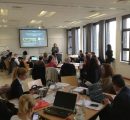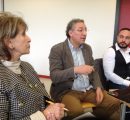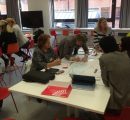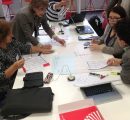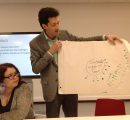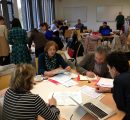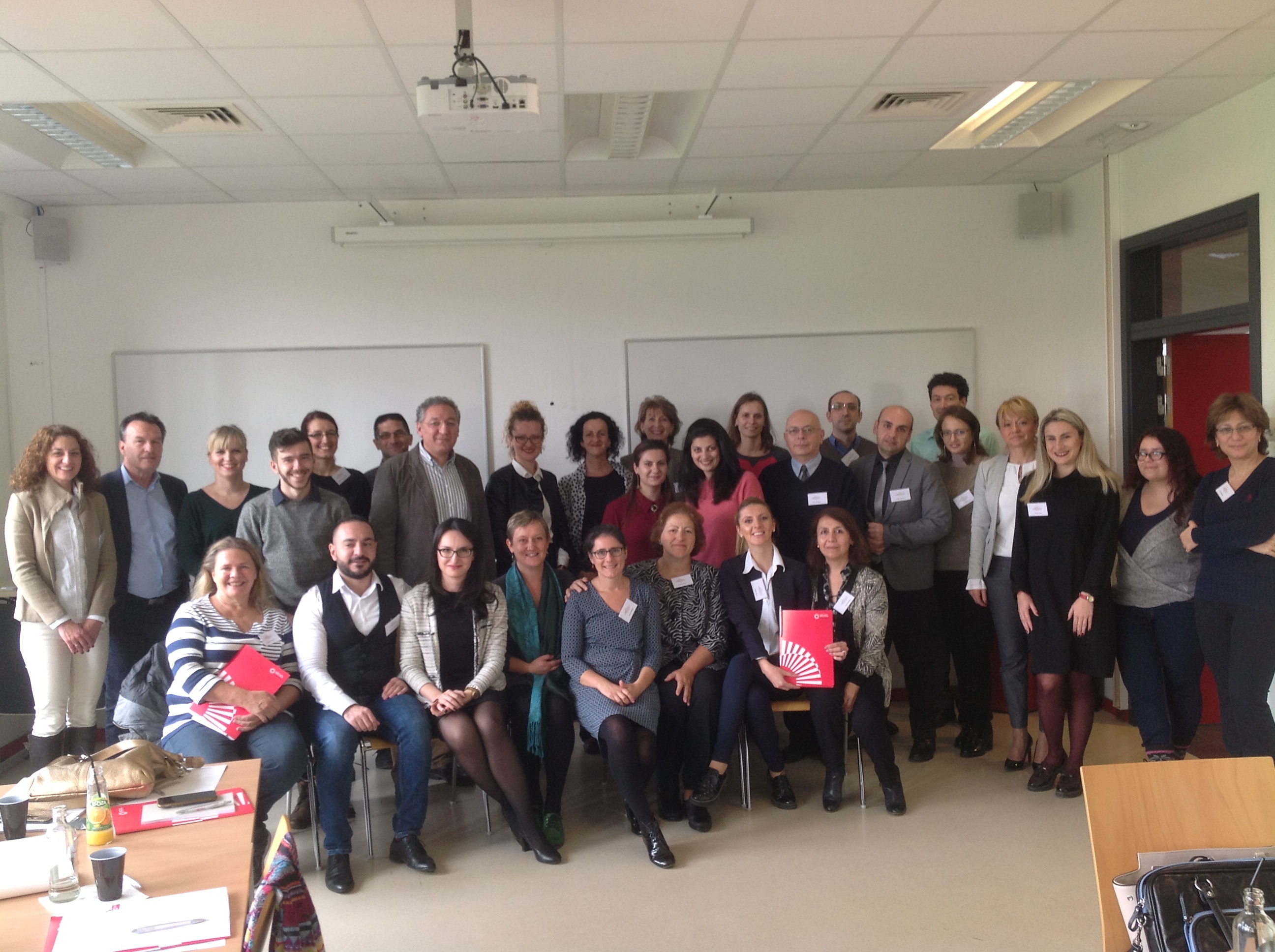
AUA Participates in Two-day Conference in Belgium Within Erasmus+ Inclusion Project
2 min read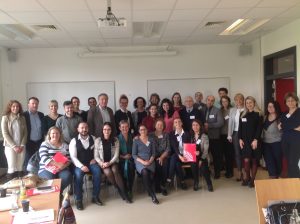 LEUVEN, Belgium – From November 9-10, a delegation from the American University of Armenia (AUA) participated in a two-day conference hosted by University College Leuven-Limburg (UCLL) in the scope of the Erasmus+ “Development and Implementation of Social Dimension Strategies in Armenia and Bosnia and Herzegovina through Cross-regional Peer Learning (INCLUSION)” project.
LEUVEN, Belgium – From November 9-10, a delegation from the American University of Armenia (AUA) participated in a two-day conference hosted by University College Leuven-Limburg (UCLL) in the scope of the Erasmus+ “Development and Implementation of Social Dimension Strategies in Armenia and Bosnia and Herzegovina through Cross-regional Peer Learning (INCLUSION)” project.
Delegations from the State Academy of Fine Arts of Armenia (ASAFA-the project coordinator), Ministry of Education and Science of the Republic of Armenia, Armenian National Students’ Association (ANSA), UNISON NGO from Armenia as well as delegations from University of Tuzla (UNTZ), University of Travnik (UNT), Federal Ministry of Education and Science from Bosnia and Herzegovina (BiH), Sarajevo Meeting of Culture BiH and EU partners from Roehampton University (UoR, UK), UCLL and World University Service (WUS, Austria) were also in attendance.
The conference aimed to share the art of planning institutional mechanisms for inclusive practice and social dimension strategies to foster access for disadvantaged groups. The central objectives were also to ensure inclusive curriculum development and inclusive assessment formats, leadership and clear responsibilities, and faculty training/induction courses.
“Although AUA promotes inclusive practices, there is room for improvement. This event was a turning point for the AUA team to get down to planning specific strategies and action priorities in this direction,” said Mr. Irshat Madyarov, associate professor and chair of AUA’s MA TEFL program.
To build supportive-inclusive environments at each partner country university (PCU), a special focus was placed on benchmarking analysis with emphasis on institutional context, institutional regulations and guidelines, quality assurance and quality enhancement, facilities, buildings and accommodation, learning and teaching and additional support and advice. Discussions on implications for writing the institutional and the national/regional guidelines, as well as exercises on stakeholders and social dimension strategies followed. It was particularly underlined to build on strengths and work on weaknesses as identified in the benchmarking exercises (different options depending on institutional and national context, stakeholder involvement, and other related factors).
Erasmus+ INCLUSION project aims to mobilize the HE capacity in Armenia and Bosnia & Herzegovina (BiH) in contributing to the implementation of the Social Dimension (SD) strategies through capitalizing on knowledge transfer.

